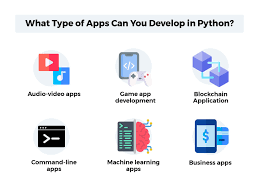In today’s digital age, mobile applications have become an integral part of our daily lives. From ordering food to booking flights, there seems to be an app for everything. As businesses strive to stay ahead in the competitive market, having a custom mobile application has become a necessity rather than a luxury.
This is where custom mobile application development companies come into play. These specialized firms are dedicated to creating tailored mobile applications that cater specifically to the unique needs and requirements of businesses across various industries. They possess the expertise and technical know-how to transform ideas into fully functional and user-friendly mobile applications.
One of the key advantages of working with a custom mobile application development company is the level of customization they offer. Unlike off-the-shelf solutions, custom apps are built from scratch, allowing businesses to have complete control over the features, design, and functionality of their application. This ensures that the app aligns perfectly with their brand identity and caters directly to their target audience.
Another significant benefit is the ability to integrate advanced functionalities within the app. Custom development companies have skilled developers who can incorporate cutting-edge technologies such as artificial intelligence, augmented reality, or machine learning into the application, enhancing its performance and user experience.
Moreover, partnering with a custom mobile application development company provides businesses with ongoing support and maintenance services. They understand that technology evolves rapidly, and updates or bug fixes may be required in the future. By having a dedicated team available for support, businesses can ensure that their app remains up-to-date and functions seamlessly across different devices and operating systems.
Furthermore, these companies often have extensive experience working on various projects across different industries. This exposure allows them to bring valuable insights and best practices to each project they undertake. They can provide guidance on industry-specific trends, user preferences, and emerging technologies – helping businesses make informed decisions throughout the development process.
Lastly, collaborating with a custom mobile application development company can save time and resources for businesses. By outsourcing the development process, companies can focus on their core competencies while leaving the technical aspects to the experts. This not only streamlines operations but also ensures a faster time-to-market for the application.
In conclusion, custom mobile application development companies play a crucial role in helping businesses thrive in today’s digital landscape. Their expertise, customization options, advanced functionalities, ongoing support, industry insights, and resource efficiency make them an invaluable partner for any organization looking to leverage the power of mobile applications. By investing in a custom app tailored to their specific needs, businesses can enhance their brand presence, engage customers more effectively, and stay ahead of the competition.
Frequently Asked Questions About Custom Mobile Application Development Company
- What services does a custom mobile application development company provide?
- How much does it cost to develop a custom mobile app?
- What is the process for developing a custom mobile app?
- How long does it take to develop a custom mobile app?
- What platforms do you support for custom mobile apps?
- Do you offer any post-launch support for custom mobile apps?
What services does a custom mobile application development company provide?
A custom mobile application development company offers a wide range of services to cater to the unique needs of businesses. These services typically include:
- Consultation and Requirement Analysis: The development company works closely with the client to understand their business objectives, target audience, and specific requirements for the mobile application. They provide expert guidance and insights to help refine ideas and determine the best approach for development.
- UI/UX Design: The company’s design team creates visually appealing and user-friendly interfaces for the mobile application. They focus on creating an intuitive user experience (UX) that enhances engagement and usability.
- Mobile App Development: Skilled developers use programming languages like Java, Swift, or Kotlin to build the mobile application from scratch. They ensure that the app is compatible with various platforms such as iOS, Android, or cross-platform frameworks like React Native or Flutter.
- Backend Development: Custom mobile app development companies also handle backend development tasks, including server setup, database management, APIs integration, and cloud storage configuration. This ensures smooth data transmission between the app and servers.
- Quality Assurance and Testing: The company performs rigorous testing at different stages of development to identify bugs, glitches, or performance issues. This ensures that the app functions seamlessly across different devices and operating systems.
- Deployment and App Store Optimization: Once the app is ready, the company assists in deploying it to relevant app stores (like Apple App Store or Google Play Store). Additionally, they optimize the app’s metadata (keywords, descriptions) to improve its visibility in search results within these stores.
- Ongoing Support and Maintenance: A custom mobile application development company provides post-launch support services such as bug fixing, updates for new OS versions or devices, adding new features based on user feedback or market trends, performance monitoring, and security enhancements.
- Integration of Third-Party Services: If required by the client’s business model or functionality needs, custom development companies can integrate third-party services such as payment gateways, social media APIs, analytics tools, or location-based services into the mobile application.
- App Analytics and Performance Tracking: They may also offer analytics tools to track app usage, user behavior, and performance metrics. This data helps businesses make informed decisions for future enhancements and updates.
- Consultation on App Marketing and Monetization: Some custom mobile application development companies provide guidance on marketing strategies and monetization models to help businesses maximize the reach and revenue potential of their mobile applications.
These services are tailored to meet the specific requirements of each client, ensuring that the resulting mobile application aligns with their business goals and delivers a seamless user experience.
How much does it cost to develop a custom mobile app?
The cost of developing a custom mobile app can vary significantly depending on several factors. Here are some key considerations that influence the overall cost:
- Complexity and Features: The complexity of your app and the number of features you want to include will impact the development cost. Apps with basic functionality and fewer features will generally be less expensive compared to complex apps with advanced functionalities.
- Design and User Interface: The design and user interface (UI) of your app can also affect the cost. If you require a highly customized and visually appealing UI, it may require more time and effort from designers, resulting in higher development costs.
- Platforms: Developing an app for a single platform (such as iOS or Android) is typically less expensive than building for multiple platforms simultaneously. Each platform has its own development requirements, which can increase the overall cost.
- Integration and Backend Development: If your app needs to integrate with external systems or databases, or requires a backend infrastructure for data storage or processing, it may add complexity to the development process and increase costs.
- Maintenance and Updates: Ongoing maintenance, updates, and support services after the initial development phase should be considered as additional costs.
- Development Team Location: The geographic location of the development team can impact costs due to variations in labor rates across different regions.
It’s important to note that providing an exact cost without understanding specific project requirements is challenging. To get an accurate estimate, it is recommended to consult with multiple custom mobile app development companies or developers who can evaluate your project scope and provide a detailed proposal based on your specific needs.
Keep in mind that while cost is a significant factor, it’s equally important to consider the expertise, experience, track record, and quality of work when selecting a development partner for your custom mobile app project.
What is the process for developing a custom mobile app?
Developing a custom mobile app involves several stages that are crucial for creating a successful and functional application. Here is an overview of the typical process for developing a custom mobile app:
- Discovery and Planning: This initial stage involves understanding the client’s requirements, goals, target audience, and desired features for the app. It also includes market research, competitor analysis, and creating a comprehensive project plan.
- Design: In this phase, the app’s user interface (UI) and user experience (UX) are designed. Wireframes or mockups are created to visualize the layout, navigation flow, and overall design of the application.
- Development: The development stage involves coding the application using programming languages suitable for the targeted mobile platforms (such as Java or Kotlin for Android, Swift or Objective-C for iOS). Backend development is also done to handle data storage, APIs integration, and server-side functionalities.
- Testing: Quality assurance is crucial to ensure that the app functions flawlessly across various devices and operating systems. Testing includes functional testing, usability testing, performance testing, and compatibility testing.
- Deployment: Once the app passes all necessary tests and meets client expectations, it is ready for deployment to the respective app stores (such as Google Play Store or Apple App Store). The necessary developer accounts need to be set up to publish the app.
- Maintenance and Updates: After deployment, ongoing maintenance is essential to address any bugs or issues that may arise post-launch. Regular updates are also required to introduce new features or improvements based on user feedback or market demands.
Throughout this entire process, effective communication between the development team and the client is vital. Regular meetings and progress updates ensure that both parties are aligned with project goals and any changes or adjustments can be made promptly.
It’s important to note that each custom mobile app development project may have unique requirements or additional steps depending on its complexity or specific industry needs. Therefore, it is recommended to work closely with an experienced mobile app development company that can tailor the process to suit the project’s specific requirements.
How long does it take to develop a custom mobile app?
The time it takes to develop a custom mobile app can vary depending on several factors. These factors include the complexity of the app, the number of features required, the platform(s) it needs to be developed for (e.g., iOS, Android), and the availability of resources.
Generally, a simple mobile app with basic features can take anywhere from 2 to 4 months to develop. This includes the planning, design, development, testing, and deployment phases. However, more complex apps with advanced functionalities or integration with external systems may take longer – typically around 4 to 6 months or even more.
It’s important to note that app development is an iterative process. It involves multiple stages such as requirement gathering, wireframing, prototyping, UI/UX design, coding, testing, and bug fixing. Each stage requires time and attention to detail to ensure a high-quality end product.
Additionally, factors like team size and availability of resources can impact the development timeline. Larger teams or dedicated teams working solely on your project may expedite the process compared to smaller teams juggling multiple projects simultaneously.
It’s crucial for businesses and developers to establish clear communication and set realistic expectations regarding timelines. The development process often involves collaboration between the client and the development team to ensure that requirements are met accurately.
Ultimately, while it’s difficult to provide an exact timeframe without specific project details, it is recommended to work closely with your chosen custom mobile application development company or developer to define a reasonable timeline based on your project’s scope and requirements.
What platforms do you support for custom mobile apps?
We support iOS and Android platforms for custom mobile apps.
Do you offer any post-launch support for custom mobile apps?
Yes, we offer post-launch support for custom mobile apps. This includes bug fixes, feature updates, and technical support.


